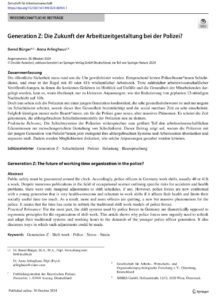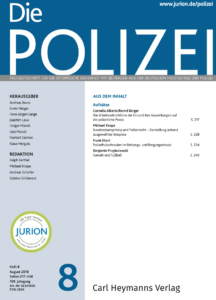My book on working time models now free of charge.
Anyone who works in patrol duty knows that the duty roster determines the pace of life. For years, I have been working intensively on the question of how we can make this rhythm better, healthier and more tolerable and wrote my dissertation on this in 2015.
My dissertation „Working time models for the police patrol service“ was available from the publisher for a long time. As it is no longer in the program, but I still regularly receive requests for it, I decided to go a new way:
I am now posting the complete work here on my site as free PDF available.
What the book is about
In this study, I have attempted to take a holistic view of the topic of shift work, rather than just examining it from one side. My aim was to underpin the often heated debates about duty rosters with ergonomic facts and a legal framework.
Focal points:
- Occupational medicine: What do studies really say about stress, sleep and accident risks in different models?
- Leadership & Social: How do rigid or flexible models affect the internal climate of a service group? What does this mean for supervisors?
- The legal framework: A detailed look at EU working time legislation and how it fits (or doesn't fit) with the reality of the police service.
- Practice check: The advantages and disadvantages of different models - from the classic shift to time-autonomous systems.
Why free of charge?
Knowledge should be shared, especially when it comes to the health and satisfaction of colleagues. The findings from the book are still relevant for staff councils, duty planners and anyone who works on rotating shifts and wants to have their say.
Instead of the manuscript gathering dust in a drawer, I hope that it will serve you as an argumentation aid or reference work.
You can download the full e-book directly here:
👉 Link to PDF: Working time models for the police patrol service
With my Publications you will also find further reading material on the subject of shift work.




